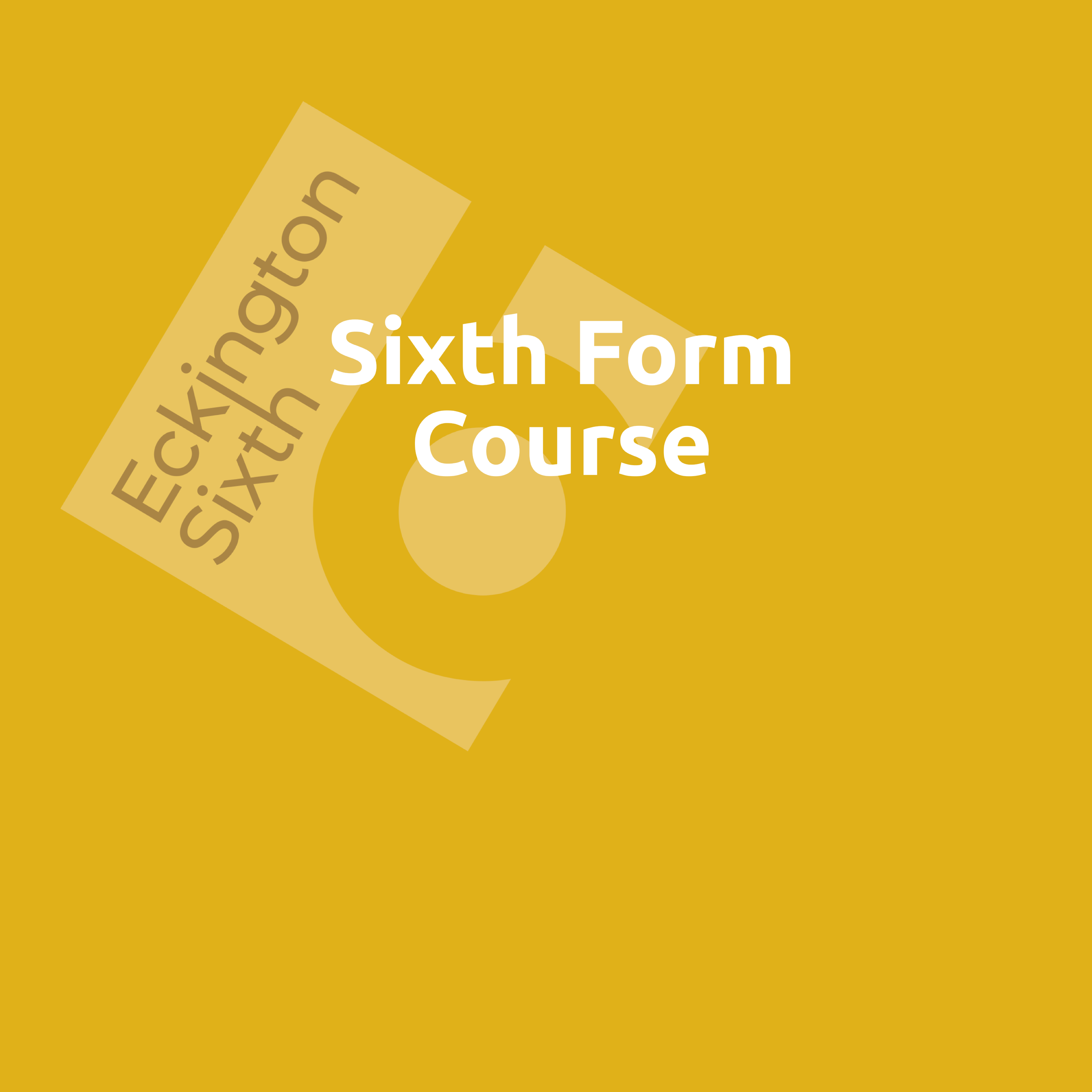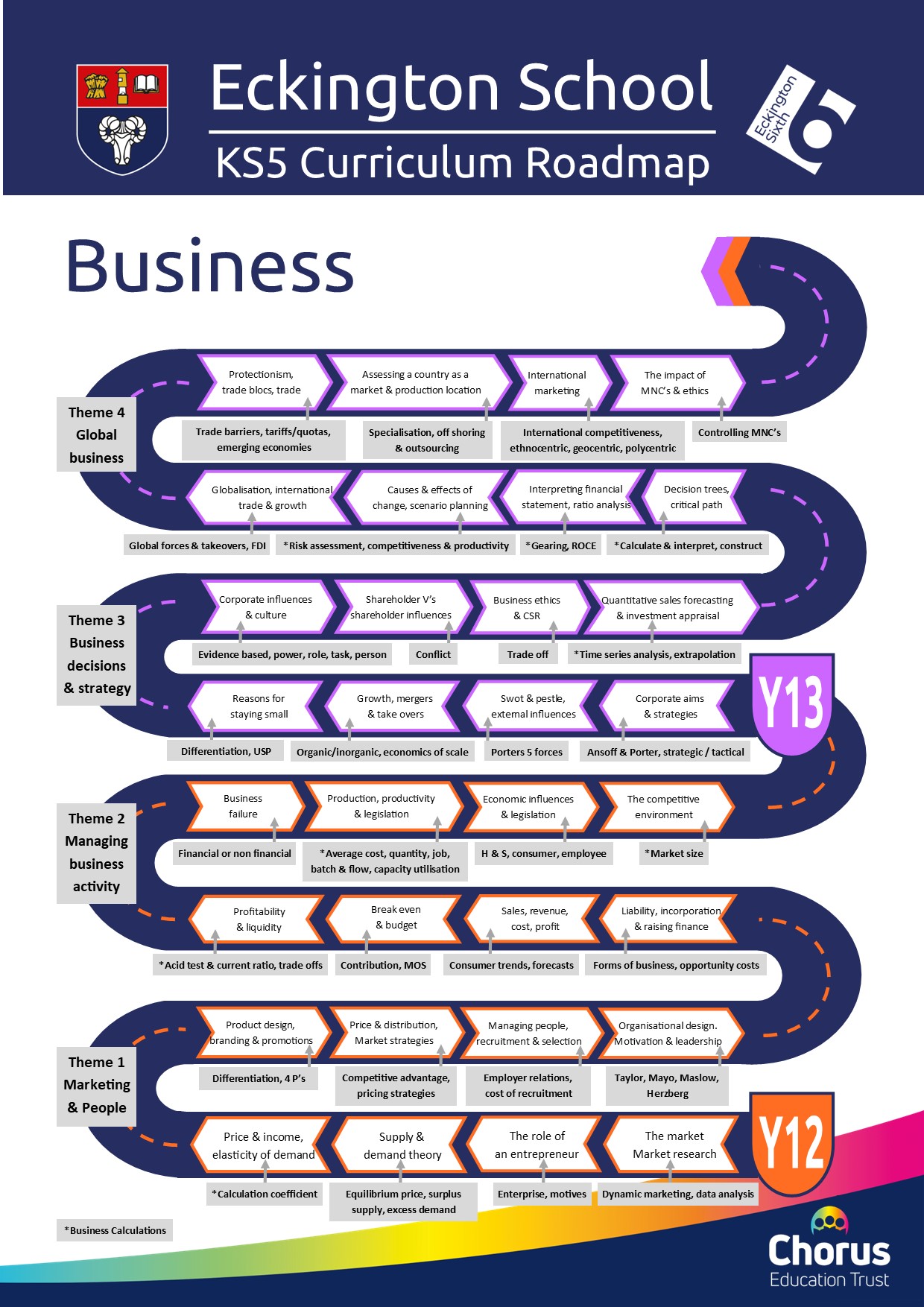Courses
We offer a broad and balanced curriculum, for:
Click the appropriate button below to find the details for each subject offered in each key stage.
Further details of our curriculum are available on the curriculum page.

Overview
Chemistry
Introduction
Studying A-level chemistry uncovers the secrets of how things work at a molecular level. It's not just about mixing chemicals; it's about understanding why and how reactions happen. This subject teaches you the basics of atoms, molecules, and reactions, giving you a solid foundation for everyday life. A-level chemistry also helps sharpen your problem-solving skills. Plus, it's not just theoretical – it has real-world applications in medicine, materials, and the environment. So, if you're curious about the building blocks of everything around you and want to solve practical problems, A-level chemistry is a fascinating and useful choice.
Qualification
A-level
Awarding body
OCR ('A' specification)
Course leader
H Streets
Assessment
- Examination: 100%
- Paper 1 - periodic table, elements and physical chemistry (100 marks) covers modules 1, 2, 3 and 5.
- Paper 2 - synthesis and analytical techniques (100 marks) covers modules 1, 2, 4 and 6.
- Paper 3 - unified chemistry (70 marks) covers modules 1-6.
- Non-examined assessment: practical endorsement, delivered throughout the course and includes titrations, enthalpy determination, synthesis of organic liquids, rates of reaction and qualitative analysis.
Curriculum
Curriculum roadmap
Topics
- Module 1 Development of practical skills in chemistry.
- Module 2 Foundations in chemistry.
- Module 3 Periodic table and energy.
- Module 4 Core organic chemistry.
- Module 5 Physical chemistry and transition elements.
- Module 6 Organic chemistry and analysis.
Skills and requirements
Subject entry requirements
- Grade 6/5 in GCSE double award science or grade 6 in GCSE chemistry if studying triple science.
- Grade 6 in GCSE maths.
- Grade 5 in GCSE English.
Sixth Form entry requirements
- 4 A-levels over 2 years: for students who have achieved 5 or more grade 7s or above including English and maths (grade 5 or above).
- 3 A-levels over 2 years: for students who have achieved 5 grade 5s or above including English and maths.
- Level 3 vocational courses: for students who have achieved 5 grade 4s or above including English and maths.
Skills learned
Practical skills acquired include planning, implementing, analysis, evaluation, independent thinking, application, research and referencing. Practical skills are covered throughout the course and are assessed in the practical endorsement.
Beyond the classroom
Future pathways
A-level chemistry is a much sought-after qualification for entry to a wide variety of full-time courses in higher education. It will also gain you access to a wider choice of courses after Sixth Form.
Many areas of employment see this course as an important qualification. It is often a requirement for vocational qualifications with a scientific element and for related higher education courses and careers.
Degrees for which it is strongly recommended include: medicine, chemistry, natural sciences, chemical engineering.




